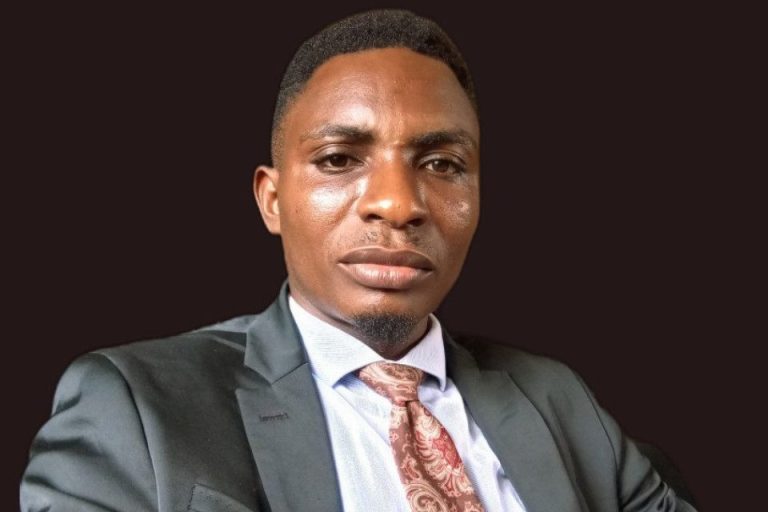
A diverse group of Nigerians, comprising representatives of civil society organizations, government and private institutions, and the media, among others, have rejected plans by the National Assembly to pass the Protection from Internet Falsehood and Manipulation Bill, 2019 (SB 132) saying it violated the fundamental human rights of Nigerians and contravenes the existing international instruments to which Nigeria is a signatory
Rejection of the Bill at the Public Hearing organised by the Senate Committee on Judiciary, Human Rights and Legal Matters which held on March 9, 2020, they also argued that most of the bill’s provisions were already captured in previous legislation including the Cyber Crimes Act of 2015 and the Penal Code. They also noted that the similar law in Singapore which the sponsor of the bill plagiarised was being used by the Singaporean government to target critics and political enemies.
Only three speakers out of the 62 individuals, institutions and groups, who submitted a memorandum and spoke at the Public Hearing supported the proposed legislation.
Among those who spoke against passage of the bill is the Executive Vice-Chairman of the Nigerian Communication Commission (NCC), Umar GarbaDambata; National President of the Nigeria Union of Journalists (NUJ), Christopher Isiguzo; head of Civil Society OrganisationsSituation Room, Clement Nwankwo; Chairman of the Broadcasting Organisations of Nigeria (BON), Mrs.Saad Ibrahim; Chairman of DAAR Communication, Raymond DokpesiJr; Publisher of Sahara Reporters, OmoyeleSowore; Amnesty International, Policy and Legal Advocacy Centre (PLAC) and Socio-Economics Rights and Accountability Project (SERAP), among others.
Criticizing the bill, the NCC Vice Chairman said NCC provides the infrastructure for internet service providers to operate but it has no mandate to interfere with the content or determine appropriateness adding “certain provisions of the bill are difficult to implement.” He drew attention to an aspect highlighted by most critics, that the bill gives unconscionable power to the Police to be the judge and jury of proper internet content.
Mrs.Sa’ad Ibrahim said “the bill is undefined and misleading” and declared the bill and its intention as “not necessary.”
Clement Nwankwo on his part called on the Senate to jettison the bill as according to him, the bill has huge ramifications that can threaten the fabric of Nigeria’s democracy and the achievements of its outlined fundamental objectives that are aided by the deployment of social media tools which facilitate citizen participation and engagement with their representatives in the 21st century.
Nwankwo, who spoke on behalf of the CSOs, noted that the bill, if passed into law, would be a threat to human rights, and urged the Senate to discountenance it.
The International Press Centre (IPC) in a memorandum dated March 5, 2020, and submitted to Senator Ahmad Lawan, the Senate President; Senator Michael OpeyemiBamidele, Chairman Senate Committee on Judiciary, Human Rights and Legal Matters; and the Clerk, Senate Committee on Judiciary, Human Rights and Legal Matters formally restated its opposition to the Bill in all its entirety and demand that it should be withdrawn as it does not accord with the public interest.
IPC presented three arguments against the bill ahead of the Public Hearing slated for March 9, 2020 to discuss the bill by the Senate Committee on Judiciary, Human Rights and Legal Matters.
It argued that the provision of the Bill in Section 1 (d) under Part I- Aims, Objectives and Applications to enable measures to “be taken to enhance disclosure of information concerning paid content directed towards a political end”, constitutes a violation of the political rights of citizens as well the right of individuals to privacy.
The organization also argued that the provisions of section 3 (1) (vi) under Part 2 prohibition of transmission of false statements of fact, that makes it a punishable offence to “diminish public confidence in the performance of any duty or function of, or in the exercise of any power by the Government”, constitutes an attempt to criminalize the criticism of public officials in the course of performing public duties.
The group also pointed out that the provisions of section 12 (Access blocking order) of the bill could be used to curtail the internet rights of journalists and other professionals.
In general, according to IPC, the bill duplicates the provisions of the cybercrime Act and other relevant laws of the federation and therefore should be dropped in its entirety.
OmoyeleSowore, publisher of Sahara Reporters, an online news portal echoed the general opinion that the protection from internet falsehoods is intended for the benefit of political leaders, not the general public. Sowore asked rhetorically: “Is something false because the government does not like it or is it false because nobody wants to accept that it is true?” he added that the curious naming of the bill is a branding goal aimed at shielding the government from public criticism.
Samson Itodo argued that: “YIAGA Africa is of the firm view that the Protection from Internet Falsehood and Manipulation Bill (Social Media Bill) is not reasonably justifiable in a democratic society.
“Even though the government’s purpose may be legitimate and substantial, that purpose cannot be pursued by means that broadly stifle fundamental personal liberties.
“We strongly believe that the bill contravenes extant laws that guarantee citizens freedom of expression and thought.”
Senator Mohammed Sani Musa, the bill sponsor drew a correlation to coronavirus’s rapid spread and impact including on businesses and pressed the audience to see fake news as a virus in need of containment. He posited that unless there are firewalls against the “epidemic,” Nigeria will be worse for the unfettered freedom that comes with communication on social media. He was, however, more or less the lone voice in the defence of his social media bill. Only two persons supported him out of the whole lot.
Supporting the bill, the Nigerian Army argued that even in advanced democracies, they still have a way of regulating the media. Major General Solomon Udoma who represented the Chief of Army Staff, Yusuf Buratai, said “false information undermine leadership, destroy peace and threatens unity.”
Another supporter of the bill, Ustaz Yusuf Nwoha, who is the Director of Administration of the Nigerian Supreme Council for Islamic Affairs (NSCIA) suggested that aspects of the bill which could infringe on the rights of Nigerians should be expunged.





